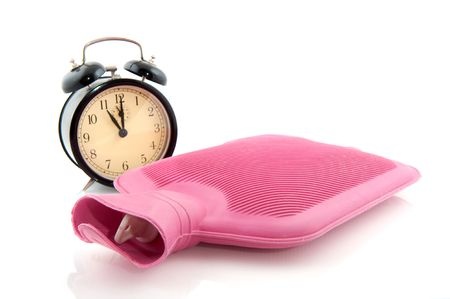At the ripe old age of 24 I would roam the halls looking for all the things that were wrong
At the ripe old age of 24 I took on my first job as a nursing home administrator. There I would roam the halls looking for all the things that were wrong. That was how I was trained. To look only for the bad. (With a clipboard, because with a clipboard everything becomes that much more serious.) Looking for Unmade Beds Part of what I’d do was walk around in the morning, around 9:30 searching out who was still in bed and what beds weren’t made up. “Why is that person still in bed?” “Why isn’t that bed made?” I’d inquire when I came across a staff member scurrying around the long stretch of halls struggling to get their endless list of tasks completed. I wasn’t a bad person. In fact, I went into long term care because I had been a nursing assistant in college and hated what I saw. 
How then had it come to this?
How was I the one responsible for residents getting ripped out of bed at 5 AM for an institutional breakfast tray that would arrive over two hours later? How did I become the reason that residents were snatched from their warm beds to be placed on display for hours as they sat slumped over in a chair? How could I not understand the incredibly powerful message I was sending to staff? Residents don’t matter. Tasks do. A bed with perfectly tucked in corners is more important than the person who snuggles into it each night.
How Did I . . .
How did I miss the point that I was hardening the staff? The very same staff that I was often disappointed with because they were acting so hardened in their work? You pluck a person out of bed enough times, yelling, crying, scratching or even worse, quietly enduring the barbaric treatment because they surrendered long ago, you can’t afford to show any emotion. Your heart simply cannot bear it. And so the people entrusted in my care suffered. Residents. Staff. The very people that I went into long term care to try to help suffered because of my senseless actions. What was wrong with me? How had I lost my way? I went into the work with a giving heart. I was trained by caring people that were good administrators. When I reflect back on those early years, I think it comes down to the fact that I simply did the best that I knew. I didn’t know there was another way. I didn’t even know to question the status quo. (I find that bewildering now given my rebellious nature!) I did what I was “supposed” to do. It hurts to reflect back on those days and realize I not only allowed all this misery to occur, but I encouraged it. Eventually I found my way and my defiant, teenage-like mindset emerged. I wish I could turn back the hands of time. I can’t. Instead I take my heavy conscious and share my heart-felt lessons with others in the hopes that I can make a difference in the lives of residents now and in the future.
Why on earth do we still think it’s acceptable to wake people up at hours they don’t want to be awakened?
I have often shared in my presentations that I think this practice should be considered a reportable form of abuse. I truly believe it. We kid ourselves and declare things like, “We don’t get them all out of bed; some people we just pull them up to eat and then they go back to sleep.” So if you aren’t a “get up” you are a “pull up”. The two wonderful names we bestow upon the poor souls that we torture each morning. (If a resident sleeps to when they want to they are probably another one of my favorite words in long term care, “difficult”.) If you don’t think it’s happening in your organization, I hate to be the one to break it to you, but there’s a really good chance it is. If you serve breakfast at a set time each morning, I’d pretty much guarantee it. Don’t tell me staff can call down to the kitchen for a late breakfast. That’s an extra step for staff and they have no time for extra steps. Don’t tell me you have “late trays”. That’s a Band-Aid that assumes a person has the same waking patterns every day of the year for the rest of their life. Find out what is really happening. Not what your policy is or what the department directors presume is the practice. Ask. Observe. Dig deeper. Do what you know is right. Your residents deserve better. Your staff deserve better. You deserve better. Denise
If you like this article (or even if you don’t) it would be a great honor to have you subscribe to our mailing list HERE









Bravo! This subject is usually in the top 3 issues I discuss with my clients as well. Like you, I find that our industry is so consumed with tasks and time-tables that make the lives of the staff/leaders easier….to the peril of what’s best for those we serve. Good gracious!
In my role, as a Dementia Solutions Expert – I spend significant time explaining to those I work with, that ‘person centered’ is more than a marketing buzz word. It’s actually a method that works and works well – when implemented appropriately and in a manner that truly honors the person(s) we are serving. Too often, when I querie staff about why we wake folks up at 5am, when b’fast isn’t served until 8am – I get blank stares and shrugging of shoulders. Typically, it aligns with overnight/day shift change. Often, I’ve observed the overnight shift awake and dress the residents only to lay them back in bed for the 1st shift to come in and awake them again for b’fast. What??
And, then we wonder why ‘Mr. Jones’ is having a ‘behavior’ by 9am. ‘Behaviors’ (which is another term we shouldn’t use/condone) are un-met needs and ways to communicate. So, Mr. Jones is probably acting a certain way at 9am – because he’s already exhausted from being awake since 5am!
Thank You Denise, for shining a light on this issue and opening the discussion.
Thanks for your thoughtful response Ellen! I’m not sure it makes staff’s lives easier, they get beaten up and cursed at when they are forcing people out of bed. Sadly, I probably would have given you a blank stare when I was a CNA too. It’s all I knew and there wasn’t a system to support anything else. Thanks for doing the work that you do. It’s so important.
What a most excellant article. I have been a Nurse for 40 years and as I look back on Nursing when I was so young I view it as almost barbaric. Thank goodness for progress and realizing that ensuring the Right to be treated as an individual person is what really matters.
I feel your pain Judith! We know better we do better right?
I’m looking at the times that the two women before me posted – good grief. Who needs the sleep here?! Yes, a sage article yet balking against the institutionalized form of care that predominates to this day as a result of the overbearing regulations within which nurses must work. Here I am in marketing, and what do I know about this except that I know how hard our nurses work, the depth of their care, yet they’re put in straight jackets of institutionalized care due to the crushing # and kind of regulations, especially in California, under which they labor. Surveyors are required to find “something” and how demoralizing when nurses work so hard. Sleep is the gift of the gods as are the simple things in life – proper nutrition and exercise. They’re at the core of recovery, but what hope is there with all this regulation to “let people be” when they’re in a SNF? I don’t fault the staff, but the regulators.
I hope it’s different time zones Candiece! I appreciate your perspective in marketing, and would add that our “traditional” system in aging services is demoralizing to all staff. I’m curious as to what regulations you believe take away hope and support this horrible practice.
Ha Ha Candice! I’m on the East Coast! 🙂 lol
Excellent commentary. As a nurse of many years, I can look back to when I was a nursing assistant in the 1970’s and have clear memories of being formally reprimanded for sitting on the bed of a person, holding their hand. It was labelled “unprofessional.” We used to restrain anyone that was at risk of crawling out of bed……….the list is long. Fortunately in my lifetime, we have seen great change. We have left a lot of dehumanizing practices behind. However, we have also adopted many practices that smack of dehumanizing, institutionalized, and being assembly line in nature. Go to hospital for an outpatient procedure and you will experience some really impersonal care.
We are better but we have a long way to go, not just in long term care but throughout health care.
Very well said Laura! We have made it so far and that we should celebrate. Lots more improvement to go though as you said! Love the “unprofessional” story you shared. Wonder if that has really been abolished in all places? Thanks for your thoughts!
Sooooooo completely LOVE your story! I can fully relate to your experience! However, when I look back upon my misguided beliefs and actions over the years, I am ever so aware that I will be even MORE enlightened in future years. What am I doing and saying today with great conviction, which I will be sickened by in later years!!!! Oh dear. …if only we knew now what we’ll know then!
Yes Veronica! A crystal ball would be fabulous!
Hi Denise,
A few years ago I led a research project aiming to establish the determinants of poor sleep in care homes. The findings were presented at GSA annual meetings and at the LeadingAge Conference in Denver 2012. You will find further information on my website including some of the publications (www.crane-net.eu).
In 2013 IAHSA presented me their “Excellence in Research Award” because the recognised the importance of sleep in care homes and how important it is that we rethink how night time care is delivered. Our research findings provide an evidence base from which best practice can be developed.
Hope you find this helpful, happy to discuss or answer questions
Ingrid
Thank you so much for sharing that information Ingrid. I will definitely be reaching out to you to hear more about your work.